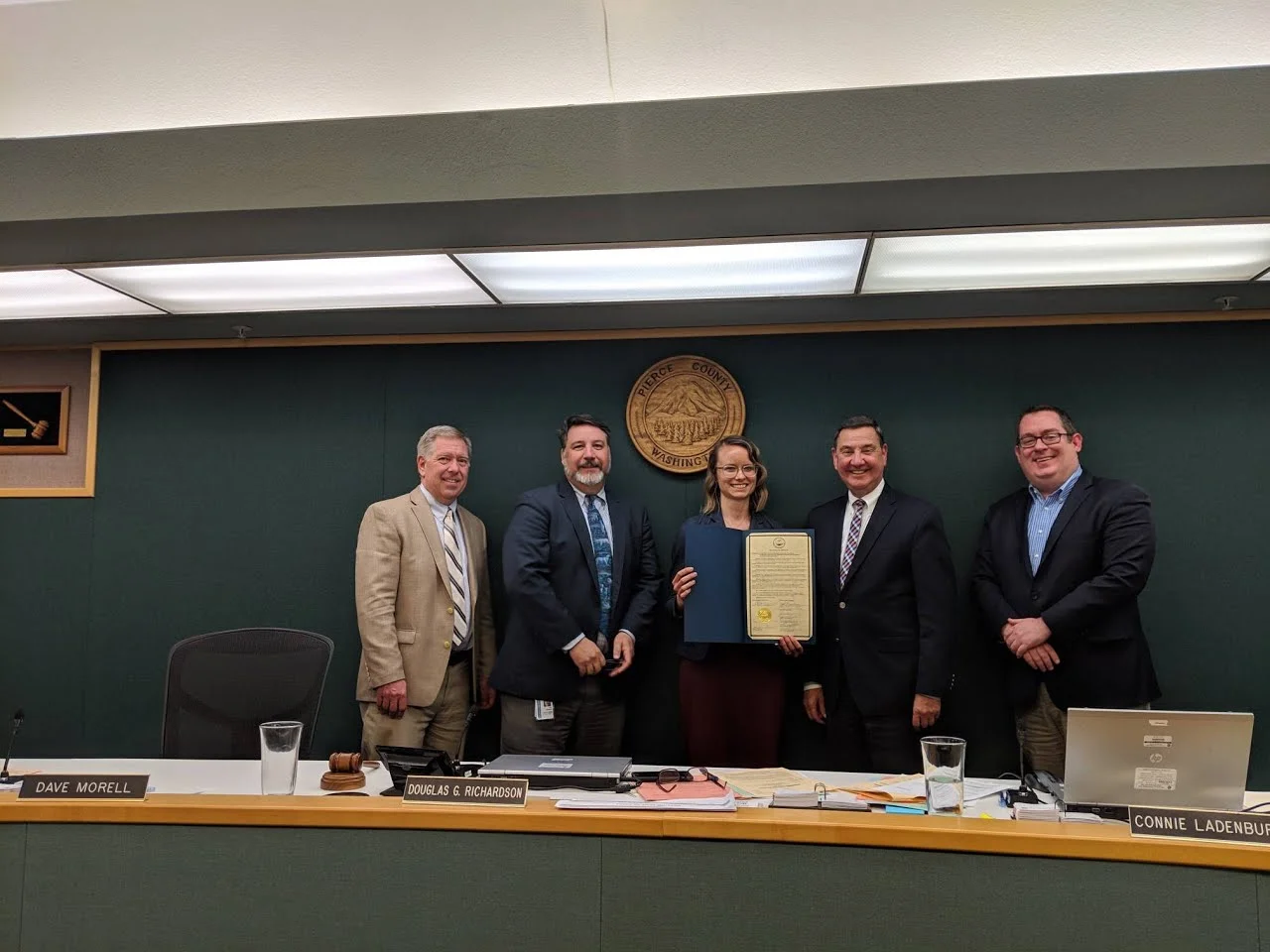Counties Are Investing in Doulas to Advance Birth Equity
Maternal Mortality Rate, 2018-2021
Counties across the country are investing in community-based interventions, such as doula services, to combat the nation's rising maternal mortality rates and address the social determinants of health that impact perinatal outcomes. The United States has the highest maternal mortality rate among high-income countries, yet research tells us that many of these deaths are preventable. Research also shows that U.S. communities do not share the burden of death equally: Black and Indigenous people are three to four times more likely than non-Hispanic white people to die from pregnancy-related causes.
Doulas As a Provider of Holistic Support for Pregnant People
Doulas are trained non-medical professionals that provide physical, emotional, educational and advocacy support to expectant parents during pregnancy, labor/delivery and the postpartum period. Doulas provide three broad services to parents: information, navigation and advocacy. While doulas alone are not the solution to the maternal health crisis, they are a community-based intervention with the ability to meet the needs of people most affected by health inequities and address the social determinants of their patients’ pregnancy experience. Doulas interrupt the cycle of harm to pregnant people including discrimination, exclusion and loss of autonomy by recentering compassion and humanity into pregnancy-related care. Evidence shows that when pregnant people are connected with doulas, they have improved birth outcomes and safer, healthier and more satisfying birth experiences. Benefits include:
Decreasing the prevalence of cesarean sections, low birthweight babies, preterm births, the use of epidural, postpartum depression and low APGAR scores
Identifying early signs of mental health conditions among pregnant people
Connecting pregnant people to community resources such as the Supplemental Nutrition Assistance Program or housing assistance
Supporting caregivers by supplying meals and comfort to the infant between feedings, among other services, and
Increasing the return on investment for healthcare systems and off-loading the burden on front-line providers.
What are Counties Doing to Support Doula Care?
Doula care is not widely available in this country. Currently, only six percent of birthing people receive doula care and only eight states cover doula care under Medicaid. Those with relatively limited resources often cannot afford a doula, making them inaccessible to those with the greatest need.
Counties can play a key role in managing complex systems affecting maternal health and several are dedicating resources to increase access to doula care for all pregnant people.
Los Angeles County, Calif.: In response to California including doula care as a Medicaid benefit, the Los Angeles County Board of Supervisors unanimously approved a motion to expand doula services and grow the doula workforce in the county. The motion calls on the Department of Public Health—in collaboration with the Department of Health Services, the Anti-Racism, Diversity, and Inclusion Initiative and other stakeholders—to create a report on how to fund and implement doula-related services. This working group will report back to the board, who will then consider another motion to enact these proposals. The group’s report will explore strategies for:
Increasing access to doula services for families
Supporting doulas who want to become Medi-Cal providers
Training people who want to become doulas and existing birth workers
Expanding the county’s existing African American Infant and Maternal Mortality Initiative, and
Increasing the diversity of the doula workforce.
Henrico County, Va.: In collaboration with the state Department of Health, Birth in Color and Urban Baby Beginnings, Henrico County is launching a community-based doula program for pregnant Black and African American people. The Henrico County Office of Emergency Management supplied funding for this project. The project’s goals include integrating doulas into the county’s provider team, ensuring a safe journey to parenthood and helping parents make the best decisions for their children.
Rock County, Wis.: The Rock County Public Health Department and the Sisters of St. Mary Health St. Mary’s Hospital-Janesville announced a partnership to combat the high rates of infant mortality in the community by promoting and providing doula care to families. A grant from Wisconsin Partnership Program allowed them to recruit and hire doulas. The partnership anticipates that these doulas will help bridge the gap between patients and healthcare organizations, which can be important for marginalized communities who may not trust the healthcare system.
To learn more about the impact doulas have on infants and families and specific policy levers to strengthen the doula workforce, read the new Community-Based Doulas Brief from the PN-3 Policy Impact Center.
Further reading:
Maternal Mortality Rates in the United States | Centers for Disease Control and Prevention
Doula Care Saves Lives, Improves Equity, And Empowers Mothers. State Medicaid Programs Should Pay For It | Health Affairs
Doulas Can Improve Maternal Health Yet Are Out of Reach for Most | National Partnership for Women and Families
Community-Based Doulas and Midwives | Center for American Progress
America’s Maternal Mortality Crisis Is Worsening | The Century Foundation
The U.S. Maternal Mortality Crisis Continues to Worsen: An International Comparison | The Commonwealth Fund





